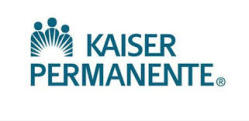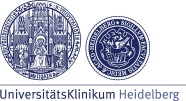AI for better medical diagnostics
AI is becoming more and more powerful and has the potential to define diagnostic quality standards for global health care. We are a highly experienced, interdisciplinary team from computational biology and medicine with decades of experience in the field. We are building diagnostic AI algorithms in the area of digital pathology for diagnosing and screening for cancer. Our specific expertise lies in the development of highly accurate, high throughput diagnostic AI applications where individual cells count. Our algorithms have a strong robustness and are validated on unprecedented scale.
CYTOREADER: Automating dual-stain cytology in cervical cancer screening
Cervical cancer screening is one of the most globally impactful cancer preventive measures and stands out due to its high degree of automation when primary HPV testing is used, which enables efficient and large-scale implementation but is lacking specificity. Therefore, effective triage and management of HPV-positive women is critical to avoid unnecessary colposcopy referrals and associated harms while maintaining high sensitivity for cervical precancer. Triage with p16/Ki-67 dual-stain (DS) testing has shown high sensitivity and specificity for detection of cervical precancers; however, its currently missing automation is hindering global implementation and adoption of the assay itself, in turn restricting the full potential of HPV-based cancer screeening. Compared with PAP cytology, dual-stain requires fewer subsequent colposcopies and detects more, and earlier, cervical intraepithelial neoplasia grade 3 or greater. Automation of the dual-stain test has the potential to become an impactful application of artificial intelligence in cancer screening for women and could significantly advance global efforts to reduce cervical cancer mortality, with applicability in low-resource settings.
CYTOREADER is our key AI application. It is the only one globally that allows the automatic or assisted reading of dual-stain (p16/ Ki67) based cytology screening for cervical cancer. It has been independently successfully evaluated in multiple epidemiological studies with leading US institutions on several thousand patients and has shown comparable sensivitiy with superior specificity. Cytoreader is not FDA or EU-IVD approved.
CYTOREADER as well as the underlying AI technology in digital pathology generally are patent protected in the US (US 11,954,593 B2), European Union (IE20180171A) and China (CN112543934A).
Steinbeis Transfer Center for Medical Systems Biology
STCMED is the Steinbeis Transfer Center for Medical Systems Biology, which is part of the Steinbeis GmbH & Co KG for technology transfer in the large network of the Steinbeis Foundation. The Steinbeis Foundation is a non-profit institution founded by the German state of Baden-Württemberg promoting the transfer of technology and knowledge between universities and industry. We are an international team of experts creating and managing large studies based on digital pathology images for the creation of artificial intelligence based assisted diagnostics. To this purpose we are closely collaborating with University Medicine Goettingen, Heidelberg University, Kaiser Permanente Northern California and the US National Cancer Institute (NCI), Division of Cancer Epidemiology and Genetics (DCEG).








